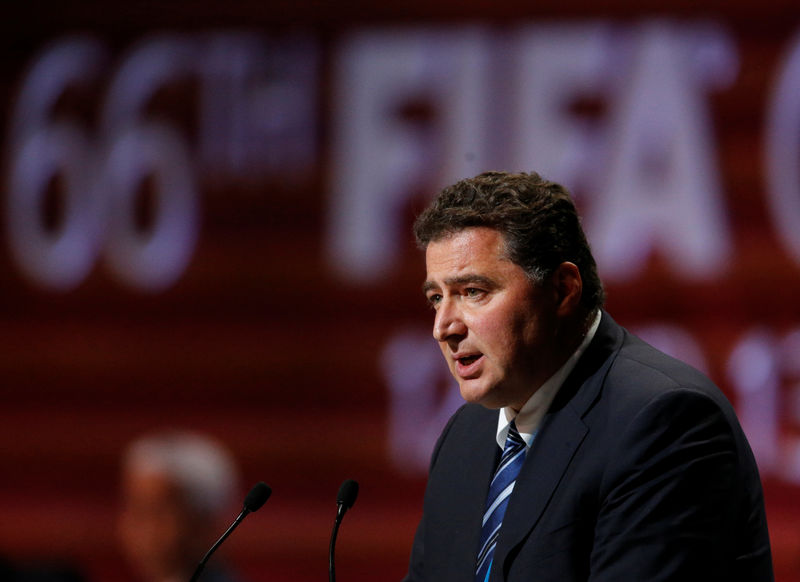By Brian Homewood
MEXICO CITY (Reuters) - Domenico Scala, a Swiss businessman who led reforms to clean up scandal-plagued FIFA, quit his post at the global soccer body on Saturday, saying its watchdog committees had lost their independence and members would be under threat of dismissal.
Scala, head of the audit and compliance committee, said the reform of FIFA, which is attempting to recover from the worst graft scandal in its history, had been undermined following a resolution by the FIFA Congress on Friday.
However, FIFA later said that Scala had "misinterpreted" the decision and the committees would remain independent.
The resolution, passed by 186 votes to one, gave the FIFA Council power to appoint or "dismiss any office holders" of its independent bodies such as the ethics committee and the audit and compliance committee.
It effectively gives the Council, which has replaced the former executive committee and is headed by the new FIFA president, Gianni Infantino, the right to fire ethics judge Hans-Joachim Eckert, ethics investigator Cornel Borbely and Scala himself.
The ethics committee, which was reformed in 2012, has played a key role in cleaning up FIFA. It has investigated and banned more than a dozen top officials for ethics violations.
These have included former FIFA president Sepp Blatter and ex-secretary general Jerome Valcke as well as former executive committee members.
GOOD GOVERNANCE
Scala, responsible for monitoring FIFA's spending, played a big role in implementing reforms aimed at avoiding a repeat of the corruption scandal that has seen 42 football officials and entities indicted in the United States.
He said the new rule "undermines a central pillar of the good governance of FIFA and it destroys a substantial achievement of the reforms".
"It will henceforth be possible for the Council to impede investigations against single members at any time, by dismissing the responsible Committee members or by keeping them acquiescent through the threat of a dismissal," added Scala.
"The bodies are factually deprived of their independence and are in danger of becoming auxiliary agents of those whom they should actually supervise."
Scala told the Congress on Friday he had "made enemies", without giving details.
Previously, committee members could only be sacked by the Congress, which is held annually and where each of FIFA's 211 member associations hold one vote. FIFA Council meetings can be called at short notice.
The vote was passed among raft of administrative measures and was not the subject of any discussion.
FIFA said it was intended to allow the Council to appoint new members while the system of committees was re-structured over the course of the next year.
"FIFA regrets that Mr Scala has misinterpreted the purpose of the decision taken by the FIFA Congress," it said, adding that the ruling would allow "for the swift removal of members who have breached their obligations".
"The Council fully respects the independence of the Audit and Compliance and the Ethics committees, and any suggestions to the contrary are without merit," it said, describing Scala's comments as baseless.
Eckert and Borbely, in a joint statement, said the move would not have any impact on their work. "Both chambers will continue to exercise this work in full independence," it said.
However, Mark Pieth, a criminology professor at Basel university who headed an earlier FIFA reform group in 2011, said the move was a "complete breakdown" of the FIFA reforms.
"The independence of the (committee members) is the centrepiece of the reforms, that is what we needed to do to get away from Blatter," he told Reuters by telephone.
"It's more of the same, it's what we were used to in the old days."
